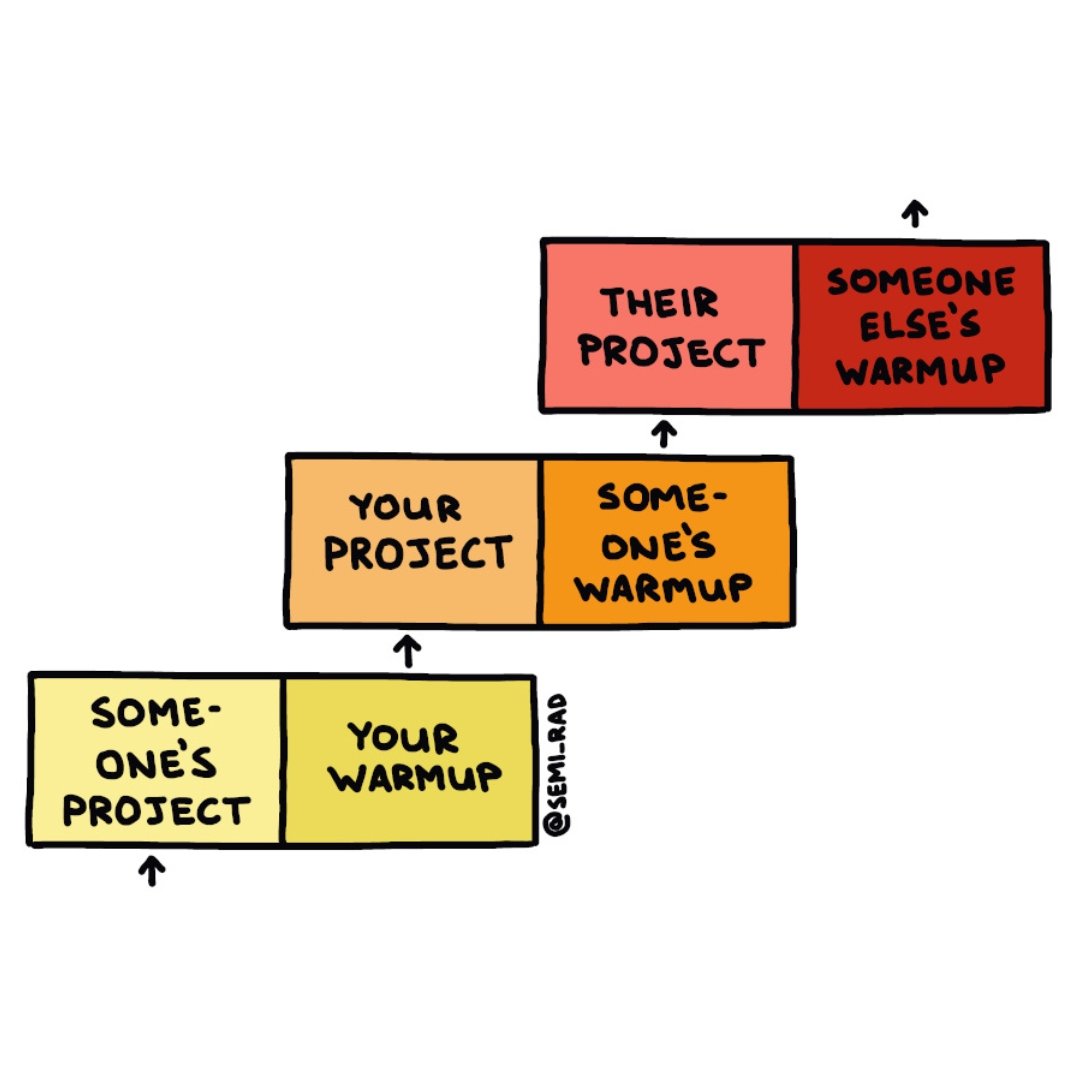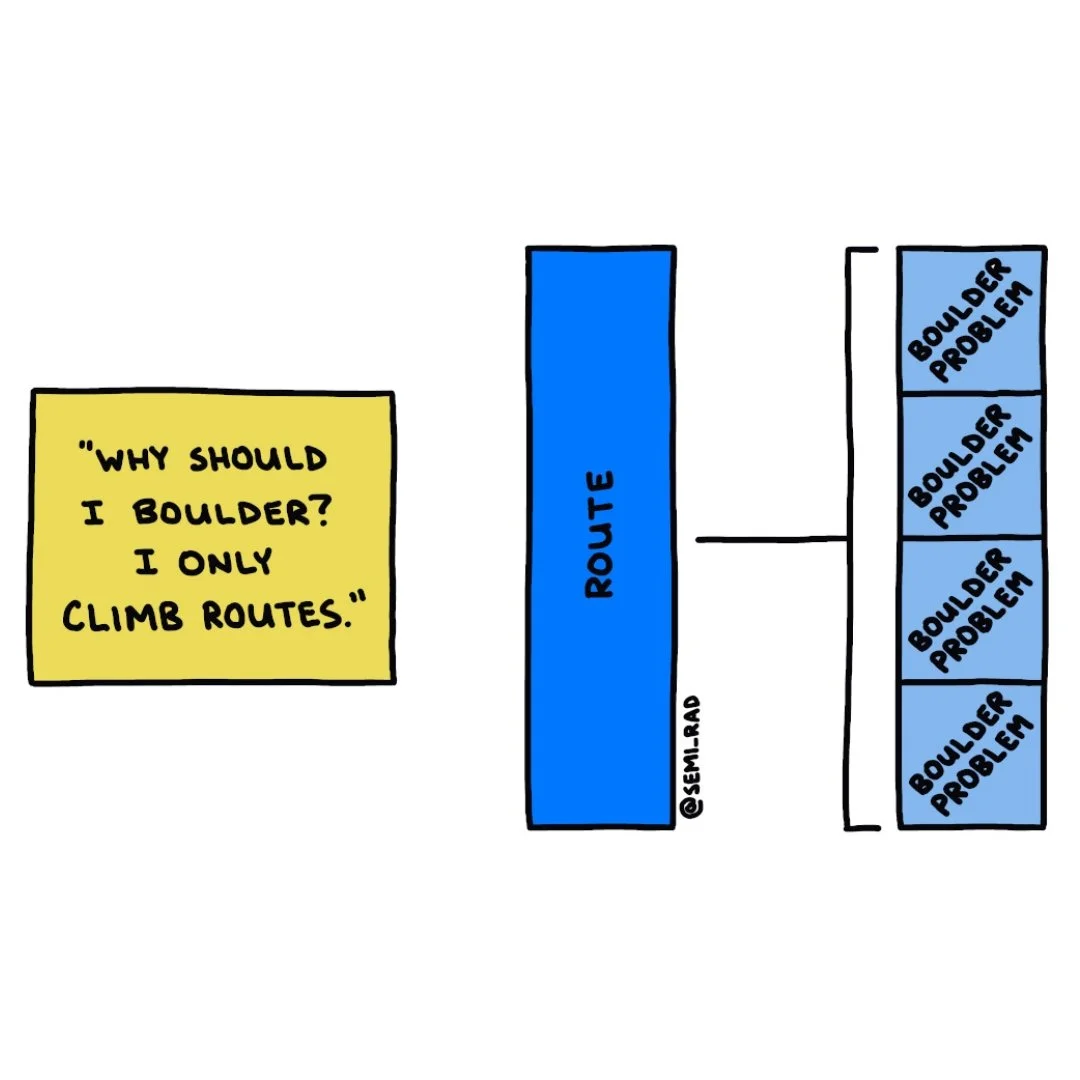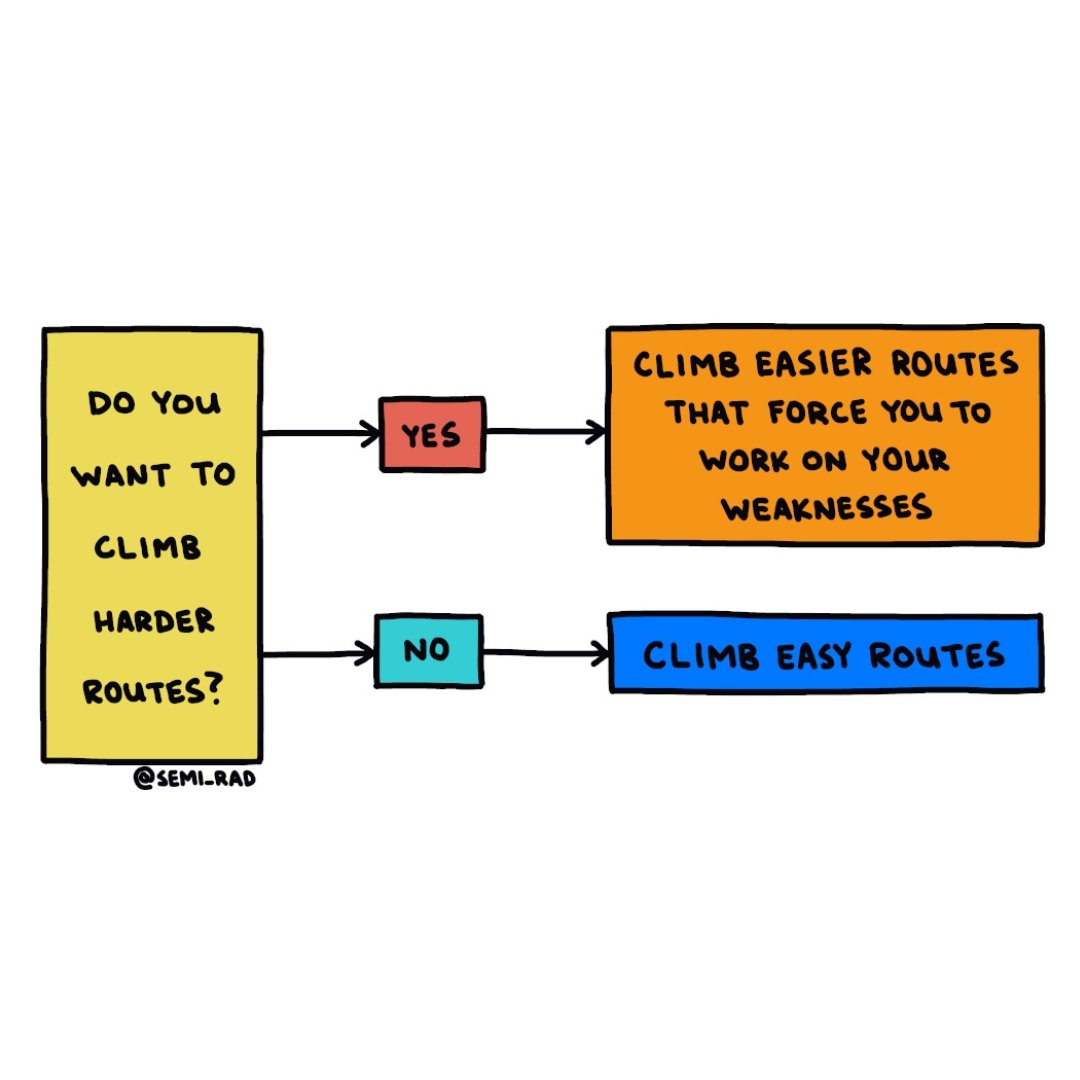Intimidated?

Our egos are ruthless. Whether we want them to be or not, they are always there, hiding just beneath the surface ready to throw a wrench in the works. I recently spoke with a climber who was feeling, for the first time ever, competitive about his climbing. I've seen climbers stop a workout early because they, admittedly, didn't want to look bad by failing on a 5.11 in front of people. Years ago, at Rocktown, a popular bouldering area in Georgia, I encountered it myself, for the first time in quite a while.
The day started off strong, having onsighted a V5 while warming up and sending my V8 project, "The Vagina", in a just a few attempts. I figured that with temps nearing perfection, now would be the time to go check out my ultimate dream boulder, "Golden Harvest" V10. As I approached the boulder from the backside, I could hear voices, and strangely, found myself hoping that the climbers were working on the V5 next to "Golden Harvest."
They weren't.
There were 3 guys working on "Golden Harvest," and according to the incessant spray, they were all close to sending. They looked strong. They were obviously dedicated boulderers, while I toted around a pad older than their climbing careers. I took a little time to commit, not wanting to make a fool of myself by falling off the first moves, which from the looks of things, were quite difficult.
After watching several attempts from the climbers, and taking a deep breath, I found myself standing at the start holds of one of the most beautiful boulders in the Southeast. I had watched the beta intently, visualized myself making the first couple moves, and stepped on without hesitation. To my surprise, the (what had appeared to be difficult) first move went easily. I almost hesitated on the second move, thinking that I must be doing something wrong for it to feel this doable. On my first try, I was able to get set up for the crux move, and move toward the distant, hard-to-snag hold. I was nowhere even close to hitting it but, on that first attempt, I had equaled the high point of these "stronger" climbers, and more importantly, had vanquished the jitters.
While sitting there on my ancient pad, psyching up to commit to trying, I had a few important thoughts. Regardless of the outcome, the situation was going to end up a positive one. Here's why…
WANT MORE? Find the complete essay in: The Hard Truth: Simple Ways to Become a Better Climber or listen to the episode below!
Skaters do one important thing much better than climbers: they chase mastery instead of success.
It's exactly the same amount of challenging for you no matter what number anyone attaches to it.
How often do you give 100%? REALLY give 100%? I make my living coaching climbers, and I seldom see a climber try their hardest. Myself included.
While in the gym, for the most part, boulderers are closer than sport climbers to training the correct way.
It's easy to get discouraged by how quickly the pros seem to put down the hardest projects.
I get it. Talking is easier than doing. What it isn't, however, is nearly as satisfying.
Nate snapped the banana in half. Clean break, right through the middle. Like a ninja.
You can almost always find a reason to continue training the short-sighted way.
There is NO single workout that any group of people can follow to get the optimum results for each of them.
Newbs, rejoice! You get a whole post. A short one, but your very own set of training wheels.
So how do you get better faster? There's a simple answer. You don't.
After much deliberation over a list of about 25, I've decided on the 5 ways I see experienced climbers derail their progression.
I hear them coming from every corner of the gym… excuses.
The fact is, you WILL NEVER get to within earshot of your potential if you don't have a complete skill set.
Our egos are ruthless. I've seen climbers stop a workout early because they didn't want to "look bad".
Fact is, seeing the "chains" as the sole representation of success is holding you back.
A climber since 1994, Kris was a traddie for 12 years before he discovered the gymnastic movement inherent in sport climbing and bouldering. Through dedicated training and practice, he eventually built to ascents of 5.14 and V11.
Kris started Power Company Climbing in 2006 as a place to share training info with his friends, and still specializes in working with full time "regular" folks. He's always available for coaching sessions and training workshops.

























Redpointing is an ultimate success built on the backs of many failures.